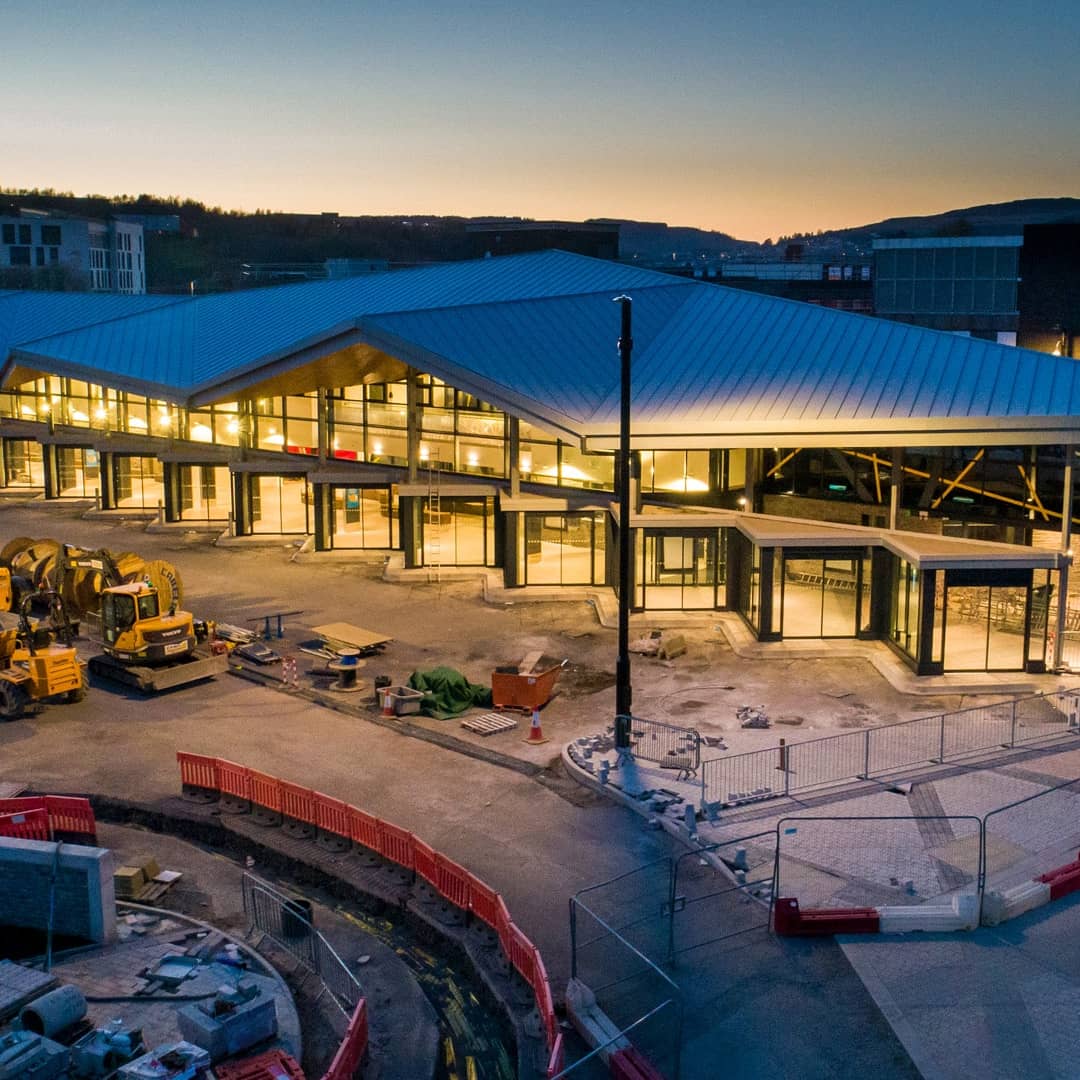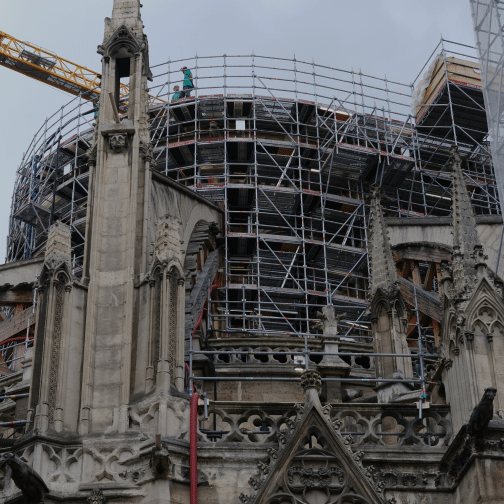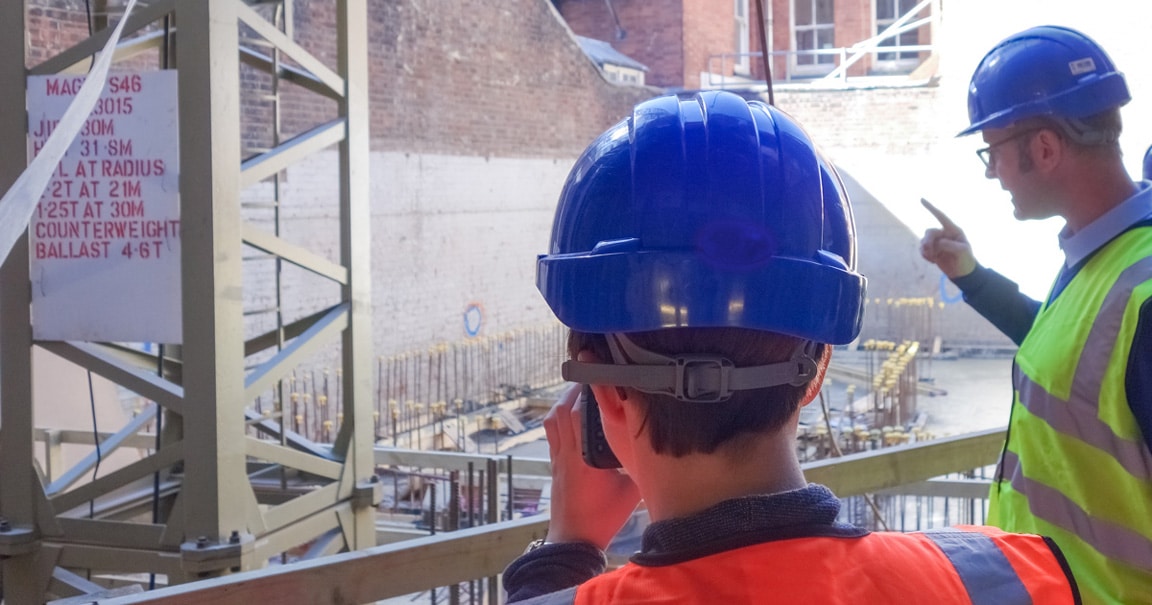A Decade of Digital Requests for Information and Quantity Estimations: Specialist Refurbishment Contractors Forcia, Ltd. Use Bluebeam Revu to Help Rebuild Central London
London has been a bustling urban development for centuries, and its citizens take pride in being the historic international travel hub of the United Kingdom. As such, the area is beholden to special restrictions and building codes aimed at preserving the beauty and architecture of the city.
While there are rules, construction still abounds – most notably in the refurbishment business. Specialist Refurbishment Contractors, Forcia, Ltd., have long served the construction needs of Central London, and after making the switch to digitalised workflows ten years ago, the firm has since established itself as an industry leader in the UK.
“We have projects all over the region,” says Forcia’s Construction Director Terry Crawford. The firm’s projects range from high-end residential refurbs to commercial and industrial projects. With such a diverse project base and London’s strict build requirements to consider, no two projects are ever the same, which forced the firm to standardise its workflows ten years ago to improve efficiency and client satisfaction.
The firm needed to not only review their RFI and quantity estimation workflows but also come up with a new programme strategy, according to Forcia Operations Manager Mike Ewing. After having what Crawford calls “an epiphany moment,” the firm turned to Bluebeam Revu, an award-winning PDF creation, editing, markup and collaboration solution designed specifically for the built environment.
“Every project in Forcia uses Bluebeam Revu. It saves us time and money every day.”
Operations Manager Mike Ewing
Digital RFIs Are Crucial to Time Savings
Requests for Information (RFIs) help coordinate site needs and materials, answer general build questions, and foster team interaction. Even smaller scale jobs create hundreds of RFIs, so figuring out the best way to work with them is essential to project success – especially on a complex project like the team’s project in Covent Garden, which involves a heavy refurbishment of existing structure. The project team will rebuild the roof, add new openings, create a new lift shaft, and then finish a fit-out of flats with high-end finishes.
“You cannot escape from RFIs,” jokes Agim Metsullari, Site Manager for the project. He explains their process, which his colleague Michael designed in Revu. “You tick by email, and post which specific person will receive the RFI; choose structural, architectural or mechanical services; type the text of the RFI; attach drawings to it; then attach photographs if you need to, or internet pages.” This workflow ensures project team members cannot miss information.
Metsullari also expresses an affinity for how the accuracy of the RFI process in Revu enables a simpler sample acquisition workflow. "For example, in this project, we have a lot of material samples, so we take from the specifications that will go in the RFI, because they will have to be approved and signed off.” When somebody verifies the information, his team files it away, knowing it is approved without any additional sign-offs needed.
Having everything instantly documented also gives Forcia unparalleled transparency among job partners and subcontractors. “If someone comes up to you and says, ‘You did not issue me that email or that RFI,’ you say, ‘Yes, I did!’” explains Metsullari. “Revu keeps it there; it is all part of the history, so you know exactly when you sent it and what you saved when you navigate through the system. It is brilliant.”
Quantity Estimations in a Digital World
Given the amount of pre-existing structure the firm encounters, the team depends on accurate quantity estimation to meet project expectations. “Revu makes it easier to do quantity estimation so you can concentrate on the more difficult aspects of the project,” says Building Estimator Niall O’Connor.
Additionally, Crawford champions other features in Revu that help highlight inconsistencies on site, helping the firm simplify the overall refurbishment process. Among these are the ability to overlay revisions and quickly add snapshots to the PDF. These features keep the team from “possibly getting swamped by a massive amount of information” and instead enable them to look at site details in isolation very easily. “We have found that part of the software to be very, very good in figuring things out,” adds Crawford.
Programme Redefined
Setting, keeping and logging an accurate programme can be the most crucial informational piece to any build site. It serves as a progress report, showing all teams exactly where they need to be working at all times.
The Forcia team decided to get creative with Revu to see if it could also help with keeping programme. “Previously, our guys on site had been making phone calls to someone here in the office to track progress on a task-by-task basis, and the guy in the office would use the software to draw a line on our construction programmes,” says Ewing.
The team discovered that they could do this in Revu on site in real time, which makes the Covent Garden project easier for Construction Strategist Andreas Redondo. “During the tender stage, I produced the programme. It is just a Polyline, but for me, it saves me hours and hours of time. They just draw a line, send that to me via email, and I instantly know what the progress is on site.”
Revu as a Project Partner
“Our clients do not realise that it is not a coincidence that we can run our projects as well as we do – and I believe that Revu is very much a partner in that process,” says Crawford. He explains that Revu enables Forcia to gather complex information and match it up with their site progress, allowing the tradesmen on site to be able to deliver the projects as they do. “The software has been very valuable to our business.”








